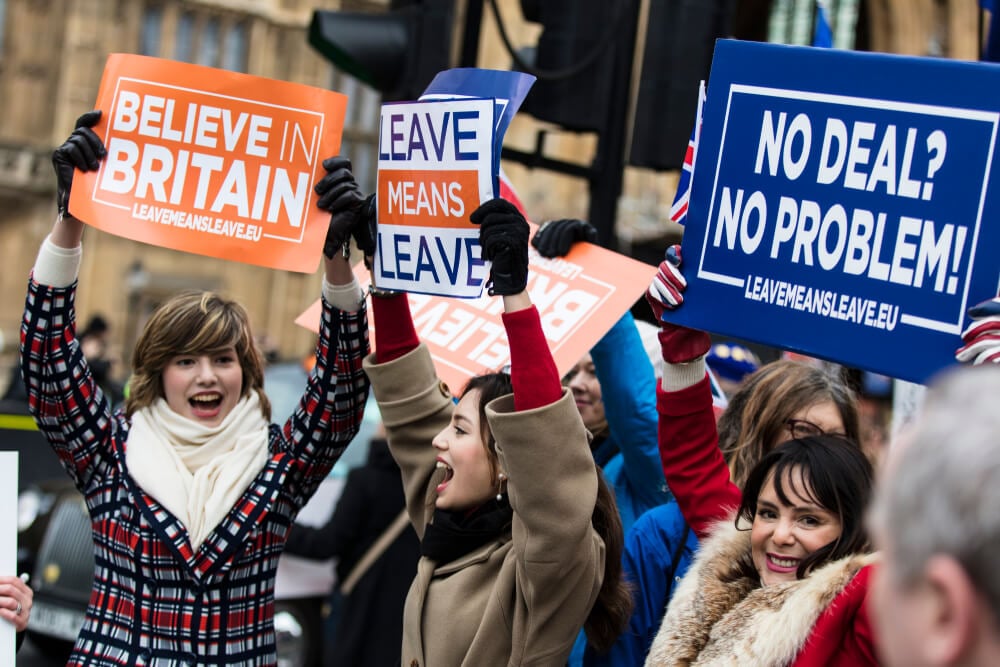If the UK could pick its political Word of the Year, 2024's would surely be ‘reset’, the term the incoming Labour government chose to describe its plans on a range of issues at home and abroad.
Keir Starmer launched the start of his five-year term from the steps of Downing Street in July by declaring: “It is surely clear to everyone that our country needs a bigger reset, a rediscovery of who we are.”
The buzzword caught on, freely applied to every initiative from mending ties with the European Union to cracking down on crime and fixing the state of the nation’s health.
After Labour’s bumpy first months in office, Starmer attempted to revive the government’s fortunes by this month announcing six ‘milestones’ for the future.
His initiative was inevitably headlined in the media as yet another reset, this time of his own struggling government, despite Downing Street’s best efforts to insist that it wasn’t.
Emergency reset
The Conservative opposition leader, Kemi Badenoch, branded it an “emergency reset” by a government that did not know what it was doing.
Starmer and his media advisers may be rueing the day they picked such a bland descriptor as ‘reset’, better reserved for fixing a broken bone or a stopped clock, to encapsulate Labour's vision of the future.
After 14 years of the Conservatives, voters who handed Labour a record-breaking majority were probably looking for something a little more inspirational from the incoming government than a regular recital of how bad the situation of the country was and how long it would take to fix.
It makes sound political sense to under-promise and over-deliver rather than the reverse. However, there are indications that the caution and negativity of some of the Starmer government’s messaging may be making a bad situation worse.
“Firms are looking to the government to boost confidence and to give them a reason to invest” - The Confederation of British Industry
Reacting to the latest figures showing the UK economy flatlining as business activity stalls, the Confederation of British Industry, the country’s biggest business lobby, said: “Firms are looking to the government to boost confidence and to give them a reason to invest.”
CBI economist Alpesh Paleja added that a combination of low output and tepid demand meant: ”There is little festive cheer in our latest surveys, which suggest that the economy is headed for the worst of all worlds.”
Low level of public optimism
Despite a slight uptick in consumer confidence as the holiday season approached, the level of public optimism about the state of the economy also remained low, with some analysts suggesting the gloomy tone of government pronouncements might be to blame.
As it approaches its half-year mark, the government’s malaise is reflected in opinion polls that show Labour heading for its worst end-of-year rating since World War II, with its popularity collapsing to 26.6 percent from 44 per cent a year ago, according to analysis by Sky News.
The decline has had less to do with bad luck, including an outbreak of summer riots that disrupted Labour’s post-election honeymoon, than with a series of own goals related to the government’s moves to reset the economy.
Rachel Reeves has taken most of the flak as the government’s designated bearer of bad economic news
Notably, the abolition of an annual fuel subsidy, which had previously gone to even the wealthiest pensioners, was greeted as an attack on the elderly poor. The introduction of inheritance tax on farmland, where a zero rate had been exploited by investors to park tax-free wealth, was seen as another blow to hard-working farmers.
In both cases, ministers failed to spell out in advance the potential benefits of such changes or to explain how they would protect those adversely affected by the measures.
Chancellor Rachel Reeves has taken most of the flak as the government’s designated bearer of bad economic news. As the holidays approached, much of the press was torn between describing her as the Grinch who stole Christmas or Charles Dickens’ Ebenezer Scrooge.
Tangible results
Starmer will want to avoid shooting the messenger as 2025 dawns and Reeves’s job looks safe for now, even as she this week reprised her usual message that: “The challenge we face to fix our economy and properly fund our public finances after 15 years of neglect is huge.”
The Prime Minister’s New Year’s resolution should be to put some flesh on the bones of his ‘milestones’, ‘blueprints’ and ‘plans for change’ and start delivering some tangible results.
 The government has proved excessively cautious in unpicking the negative consequences of Brexit for fear of alienating the minority who still back the break with Brussels
The government has proved excessively cautious in unpicking the negative consequences of Brexit for fear of alienating the minority who still back the break with Brussels
Even sympathetic critics complain that pledges to build more homes, cut hospital queues, put more police on the streets and spur a ‘green’ recovery have not been matched by meaningful action.
And, despite the promise of a reset with the European Union, the government has proved excessively cautious in unpicking the negative consequences of Brexit for fear of alienating the minority who still back the break with Brussels.
The UK government is not under threat. Its term has a good four years to run. Previous administrations, including that of Margaret Thatcher, have bounced back from worse.
Starmer just needs to consider setting a more positive tone, backed by positive action, in the New Year. He could start by explaining the benefits of inward migration and closer EU ties, rather than trying to compete with the prejudices of the right.
If he rises to the challenge, he will not call it a reset. But, of course, everyone else will.